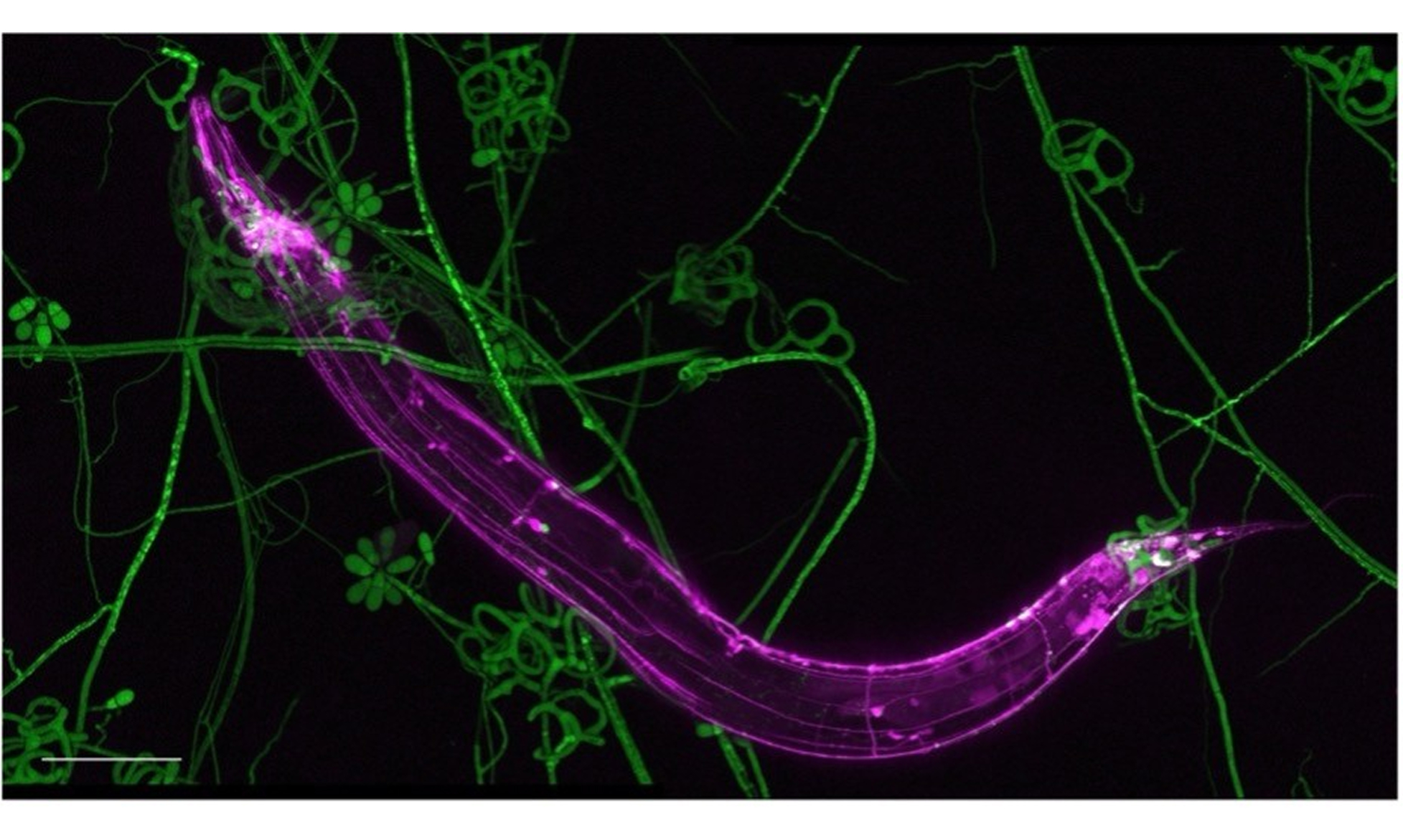薛雁冰 Yen-Ping Hsueh

中央研究院分子生物研究所研究員
學歷
- 美國杜克大學分子遺傳及微生物學博士(2008)
- 國立臺灣大學植物病理暨微生物學碩士(2003)
- 國立臺灣大學植物病理暨微生物學學士(2001)
經歷
- 德國馬克斯·普朗克生物研究所主任(2024/12~迄今)
- 中央研究院分子生物研究所助研究員/副研究員/研究員(2015/9~2024/12)
- 美國加州理工學院博士後研究員(2010/2~2015/8)
個人勵志銘
"Insight must precede application."— Max Planck
Predator-prey interactions and coevolution between carnivorous fungi and C. elegans
My laboratory studies the biology of predatory fungi and their interactions with nematode prey, using nematode- trapping fungus Arthrobotrys oligospora, the oyster mushroom Pleurotus ostreatus, and the nematode C. elegans as the models. We aim to understand this cross-kingdom predator-prey interaction across scales in time and space, at the molecular, cellular, organismal, and population levels and strive to uncover the mechanism of their coevolution. Carnivory has independently emerged in various fungal lineages. Within the Ascomycetes, Basidiomycetes, and Zygomycetes, multiple species have evolved unique strategies to prey on nematodes, Earth’s most abundant animals. Despite their fascinating biology, these predatory fungi have been minimally explored at molecular and cellular levels. Over recent years, my team has been at the forefront of developing genetic models for two carnivorous fungi: A. oligospora from the Ascomycetes and P. ostreatus from the Basidiomycetes. Each employs distinct predatory strategies. In parallel, we leverage powerful genetics and diverse ancillary resources for C. elegans to study nematode’s interactions with fungal predators. In our systems, both fungi and nematodes are genetically tractable, enabling an in-depth analysis of interactions from both sides. Our work not only addresses fundamental biological questions but also illuminates the evolutionary arms races between predators and prey. Moreover, our findings could lead to novel treatments or biocontrol methods for managing parasitic nematode infections in humans, animals, and agriculture—a pressing need in light of rising anthelmintic drug resistance.

得獎感言
I am deeply honored and humbled to receive this award. I would like to express my heartfelt gratitude to everyone who has supported and inspired me throughout this journey. First and foremost, I extend my sincere appreciation to my current and former team members and collaborators—without their dedication and commitment to excellence, this achievement would not have been possible. I am also profoundly grateful to Academia Sinica, NSTC, and EMBO for their unwavering support, providing the resources and opportunities needed to conduct our research, allowing us to explore the frontiers of fungal biology. Additionally, I would like to thank my mentors, colleagues, and friends in the scientific community, whose guidance and inspiration have shaped my scientific path. To my family and loved ones, your unwavering encouragement and love have been my greatest source of strength, making this journey possible. Finally, this recognition serves as a powerful motivation for us to continue pushing the boundaries of biological science and contributing knowledge that benefits humanity.

